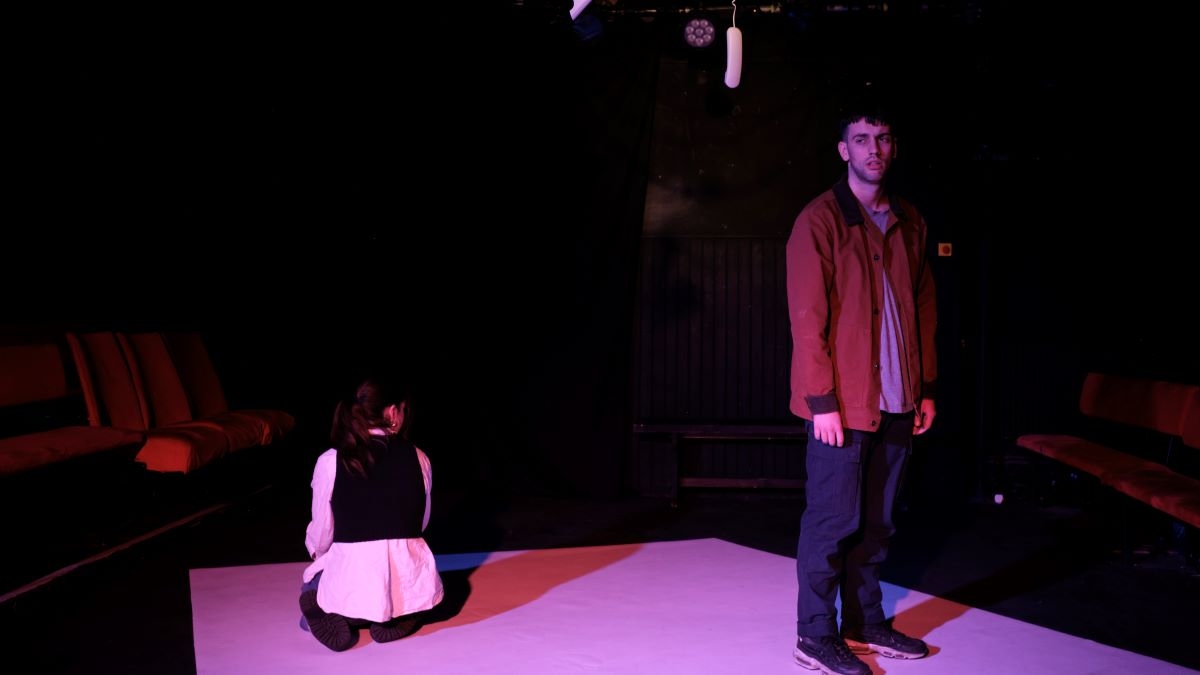Dare You Say Please, or perhaps as it should be called, dare you question the norms of society, is a 60-minute two-hander set in a transformative black-box environment. Equipped with CCTV, phone lines and surveillance hanging from the ceiling, its theme is not new. It interrogates why we do what we do and the intangible morality behind it. The second work of Aimee Varani follows the first in its vein of thought provocation and character driven conflict. The intimate environment and archetypal dress, along with familiar themes of dystopia and human ethics, could appear as the play perpetuating the pervasive stereotypes of contemporary film and television, a washed critique of the human condition. However, the plays creation of palpable awkwardness and use of silence along with a strong script, offsets this and presents the play as truly thought provoking, though not entirely ground-breaking.
The script frequently generates humour via quippy remarks and the subversion of characters’ expectations of each other. In one startling moment, at the beginning of what will determine the life or death of either character, there is an interlude of elevator music in which one is called back to a disco at the age of 12, not quite feeling comfortable to move. Each action feeling judged. The play is certainly not economic in its creation of tension or even a cathartic moment, rather it holds you on the edge of your seat throughout, offering no release but its end.
The production features a charged performance from its male lead (Leon Finnan), which perhaps overshadows his female counterpart (Nancy Farino). His performance is laden with emotion and development, whilst capturing most of the subtleties of comedic timing and delivery, without breaking the naturalistic barrier. In comparison, while the female lead provides a more considered and emotional approach, owing mostly to the script, this performance does not lend itself so much to the viewers enjoyment, but serves more as a plot device for development and counterbalance. Overall, the play grapples with significant societal issues. What it means to be good? Does adherence to normal help or harm us? And should we feel responsibility for preserving the institutions we did not choose?

